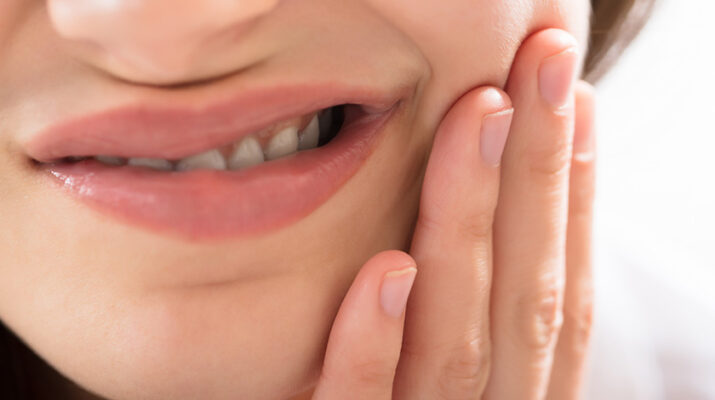Broken or displaced tooth? What to do before heading out to the dentist’s
By Deborah Jeanne Sergeant
A dental emergency is traumatic, as an acute injury to a tooth can be painful and disfiguring. For the best chances of a good outcome, follow these tips from area experts.
Tips from Linda Rasubala, associate professor and assistant director, Howitt Urgent Dental Care at Eastman Dental:
• “First, you need to save any pieces if the tooth breaks.
• “If you notice any bleeding, apply firm pressure with gauze or cloth to the area for 10-15 minutes or until the bleeding stops.
• “Call your dentist as soon as possible during that time.
• “If your tooth was knocked out from its socket, try to put it back in place and ensure it faces the right way. If it won’t stay in the socket, you need to hold it in place on your way to the dentist or to an urgent dental care clinic.
• “You also can put the tooth into a small container with milk.
• “Seeing a dentist as soon as possible and placing the tooth back into its socket within one hour post-trauma has the highest chance of saving the tooth. If someone experiences facial trauma, such as a fall or assault, he or she should be evaluated by a dentist as quickly as possible to identify any possible face bone fractures that may need urgent treatment.”
Tips from Renee Pellegrino, dentist with Rochester General Hospital Dental Center:
• “You need to determine or assess the extent of the injury. Is the injury localized to the tooth? Has the accident been bad enough where you think there could be other trauma, like head injury, concussion or the face is cut? Or you think you broke something. Check if the person is woozy and can’t answer correctly. There may be something higher order than a broken tooth. Then you need to see someone medical in the ED, if there’s trauma beyond the tooth.
• “If you have no other injury, then what I’d tell the parent or patient is to assess the break of the tooth. Not all breaks are created equally. Teeth have different layers. Depending on how severe the break is, the patient will report different symptoms. If it’s contained to the tooth only, call your dentist. They can provide an emergency visit. The tooth has three layers. The enamel is the white outer layer, then there’s dentin. The blush red is the nerve. The treatment modalities will depend on the layer. If the break is to the enamel, there won’t be pain.
• “If you don’t have a comprehensive dental provider, dental urgent care is recommended. Some ERs have limited dental capabilities to address discomfort but they won’t fix a tooth. Dentists have after-hours numbers or use a call center.
• “Evulsion is when the tooth is completely knocked out. It’s a very serious injury. We need to assess if it’s a primary baby tooth or an adult tooth. We don’t put baby teeth back in as it can obstruct the eruption of the permanent tooth.
• “If you’re an active family and sports are a really big thing to you, you may want to consider Hank’s Balanced Solution, available on Amazon. It’s a storage medium for when teeth come out. You don’t want to leave the tooth out to dry if it’s been evulsed. Hank’s has a lot of the minerals that help that tooth try to survive. If you’re unsure if the tooth is baby or adult, save the tooth. You’d be surprised the number of people who don’t locate and bring the tooth.
• “If the tooth is dirty, don’t scrub it. You’ll scrub the fibers off you need to attach to the bone. If there is debris, use some milk or Hank’s to get the dirt off.
• “Never put the tooth in straight water. It doesn’t have the right mineral content and it can damage those fibers.
• “If you are positive that the tooth is an adult tooth and you feel you can get it back into the socket in the right position, I encourage you to try to do so. The critical time is about an hour. After an hour, the prognosis drops. Use finger pressure and get to the ER.
• “If the patient is old enough and you don’t feel comfortable repositioning the tooth, the best place is in your cheek with your own saliva. But you have to consider the patient’s age, that they won’t swallow it. You don’t want to put a tooth in someone else’s mouth. If someone can spit in the cup, you can store the tooth there.
• “When you bang teeth around, those are forceful injuries. Let your dentist know that you had this. It needs to be monitored. Sometimes the injury won’t show for years. You may notice that tooth becomes more sensitive. Or it becomes darker. Over time, the nerve of the tooth is changing. The extent can’t always be determined at that point.”

